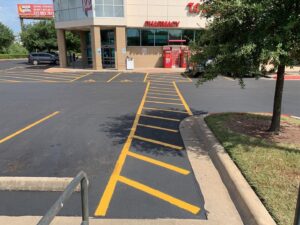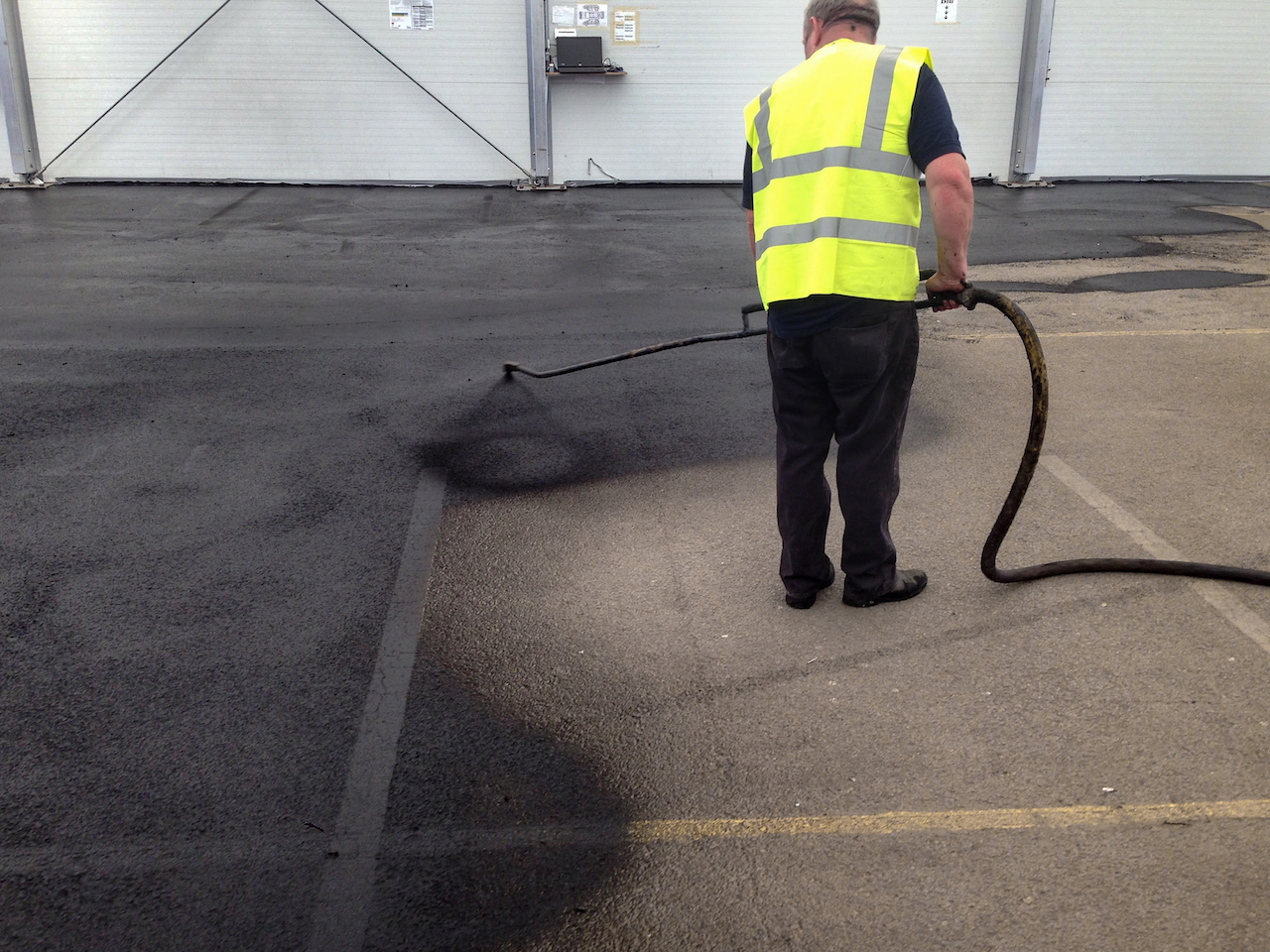
Why Is Sealcoating Problematic in the Winter?
The weather in North Georgia can change dramatically from year to year, so it can be difficult to predict a specific season for sealcoating Marietta pavements. However, most Marietta sealcoating companies typically prefer to schedule sealant applications between the middle of April and the middle of October. Even during these times, there will be days on which sealcoating contractors cannot apply sealants, but the odds are worse during the winter. Asphalt sealcoating is highly sensitive to environmental conditions, including the temperature, humidity, sunshine, precipitation, and wind. If any environmental condition is beyond the acceptable range, the quality of the job will be affected.
How Do Environmental Conditions Impact Sealcoating Jobs?
Precipitation can wash away asphalt sealcoating that has not yet dried, and it can also scar sealant that has not yet cured. Although drying and curing are related, drying simply means that the surface of the sealant is dry to the touch. Curing means that all layers of the sealant have dried, a bond has been established between the sealant and the pavement, and the sealant has formed a hard, virtually impervious shell. The other four conditions are all related to the sealant’s ability to dry and cure properly within a reasonable time.
1. Parking lot maintenance contractors measure the temperature of the pavement, sometimes called the surface temperature, and the temperature of the air, sometimes called the ambient temperature. There can be a significant difference between the two temperatures, but they both need to be a minimum of 50 degrees before a sealant application. Furthermore, they must remain at or above 50 degrees for at least 24 hours after the application. During the winter months, overnight lows are often cooler than 50 degrees.
2. Humidity levels affect evaporation rates, so asphalt maintenance contractors prefer to sealcoat on the least-humid days. Some winters see lower humidity levels than in the summer, but humidity can deter many Marietta sealcoating companies, especially if temperatures are marginal.
3. Sunshine is an important part of the curing process. In the winter, there are fewer hours of sunshine than in the summer. This also means that the contractor’s daily work schedule must be truncated accordingly.
4. Wind helps a sealant lose the water it contains, which is critical for evaporation. A light wind helps move saturated air away from the surface of the pavement so that evaporation can continue. However, on a windy day, the sealant can lose its water too rapidly, and this can make it crack.
MH Greeson is one of Marietta’s most-respected Atlanta asphalt maintenance companies. We offer many paving services for parking lots, tennis courts, and other pavements, including asphalt crack repair, striping and pavement markings, asphalt sealcoating, traffic signs, asphalt patching and paving, and ADA compliance. We are known for our extraordinary customer service, professional integrity, and exceptional workmanship. To request a free quote on any of our paving services, fill out our online form, or give us a call at 770-335-2983.




